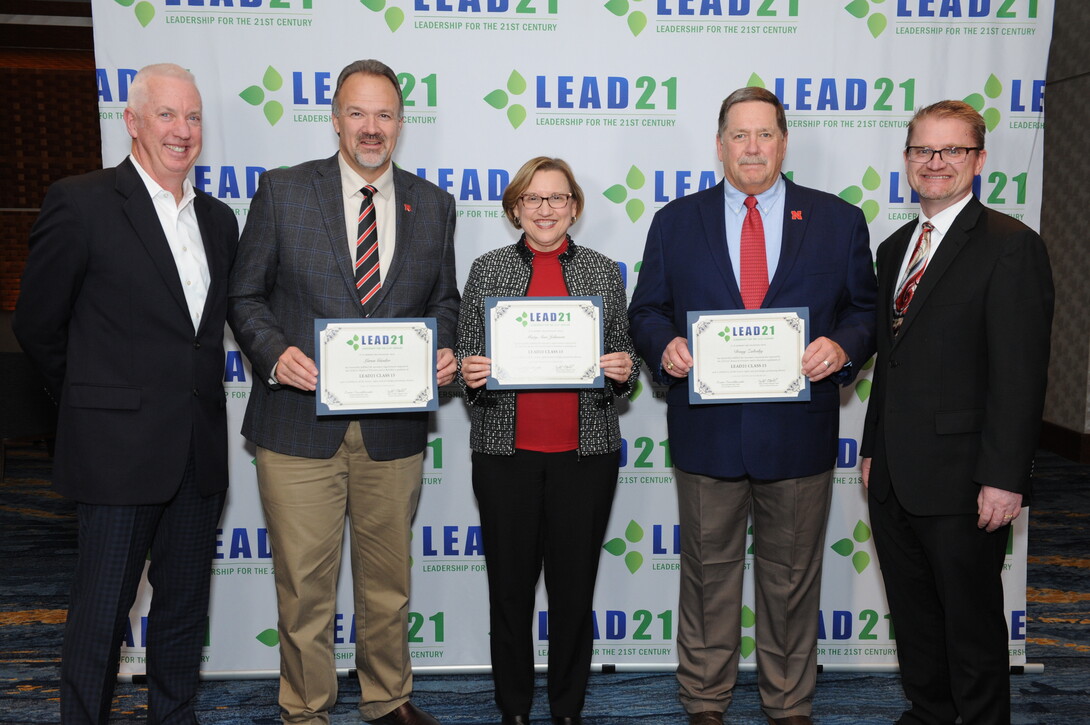
Lincoln, Neb. — Three faculty members within the Institute of Agriculture and Natural Resources at the University of Nebraska-Lincoln recently completed LEAD21 leadership training.
Loren Giesler, professor and head of the department of plant pathology; Mary Ann Johnson, professor and chair of the department of nutrition and health sciences; and Doug Zalesky, director of the Eastern Nebraska Research and Extension Center, were among the 90 graduates from across the country who comprised the 15th cohort of the program earlier this year.
LEAD21 aims to enhance the leadership skills of department heads, deans and others in leadership positions at land-grant institutions from throughout the United States. The program also allows participants to meet and share ideas and experiences with peers from wide-ranging programs and institutions nationwide.
At least one faculty member from IANR takes part in the program each year, said Rich Bischoff, IANR associate vice chancellor. The goal, Bischoff said, is to help leaders, particularly those who are relatively new to leadership roles, learn to balance their new responsibilities with their own personal and professional development.
“It’s very easy for a leader, even an experienced one, to manage his or her many tasks without looking to see what’s around the corner,” Bischoff said. “We want our new leaders to be able to create a map that allows them to see what’s 100 miles down the road, instead of just as far as the headlights will take them.”
Giesler, one of the faculty members who graduated from the program this year, said the training has proven invaluable. The training was divided into three parts, Giesler said. The first section focused on the participants as individuals and included assessments of personal strengths, weaknesses, and how each participant deals with change, among other topics. The second focused on leadership of teams, and the third focused on change within large organizations.
Giesler appreciated all components of the training but said the assessments in the first portion were particularly enlightening. “Self-awareness is probably one the greatest outcomes of these kinds of programs,” he said. “If you can manage yourself, you can effectively manage others.”
Giesler has drawn on what he learned from LEAD21 as he leads the plant pathology department through the shift to remote teaching, learning, work and research during the university’s COVID-19 response. “The challenge in leadership is to make sure you reflect back and engage tools that have been presented to you, and that you don’t just react,” he said.
For more information about LEAD21, visit www.lead-21.org.







